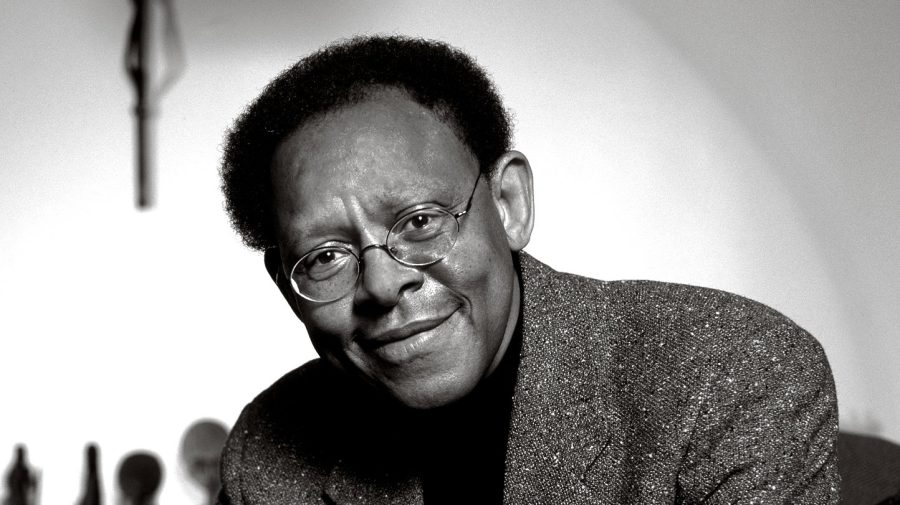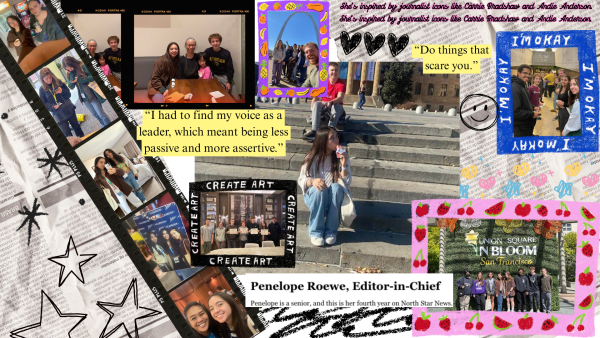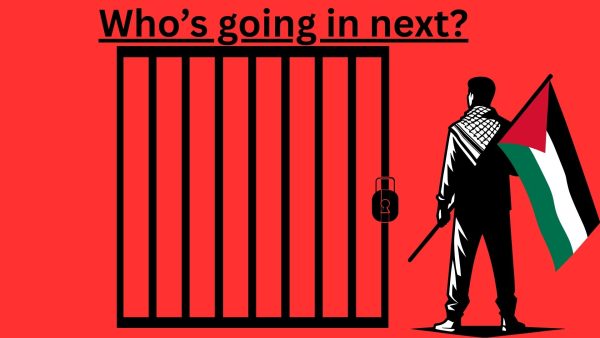Jesus was a brotha: Understanding Christianity from a Black perspective
Photo accredited to the New York Times
Black Christianity was created as a way to empower African Americans and preach about equality.
There are active debates as to whether or not Christianity is the White man’s religion; arguments range from claims such as, “The Bible was used to justify slavery,” “It was forced upon Africans” and “God let slavery happen.” Such a history of oppression, the image of a whitewashed Jesus and reluctance from the Church to condemn slavery make it difficult for many Black Americans to accept Christianity, including myself at many different points in my life. However, Black Theology has offered me a new perspective that I was never able to see before.
While masters of the enslaved attempted to use the Word of God to legitimize their supremacy, African Americans, in response, transformed Christianity altogether. The African Methodist Episcopal Church, founded by Richard Allen in 1794, is the oldest independent African American denomination; he turned an old blacksmith shop into the first church for Blacks. Allen argued, “If you love your children, if you love your country, if you love the God of love, clear your hands from slaves, burden not your children or country with them.” He even helped slaves escape through the Underground Railroad, maintaining an abolitionist stance throughout his leadership.
In the 1960s, during the Civil Rights Movement, the Black church played a critical role in defeating Jim Crow and promoting economic equality. Rev. Dr. Martin Luther King Jr. challenged the contemporary issues of his time through the utilization of religion and peaceful protest, guiding his followers to the fundamentals of freedom.
Through the words of Brittney Cooper, “The Black church provided leadership opportunities for men and women who, by and large, were in subservient positions in the workforce. And so all of these preachers doing work in the Black church have been critical to giving Black people a space to envision that a different world is possible.”
Enslaved Africans relied heavily on the Black church, finding refuge and enrichment in Christ. Enslaved Africans especially found protection in the liberating aspects of the Bible, particularly in the Book of Exodus when God demanded Pharoah to “let my people go”, on the side of the oppressed. Exodus is a book about salvation from slavery; God delivered the Israelites to freedom and raised them up. From this, Black theology came to be.
The Rev. James Cone, the founder of the Black liberation theology, explains it as “mainly a theology that sees God as concerned with the poor and the weak.” Black theology identifies God as someone who recognizes the suffering of Black people. Cone’s key texts, Black Theology and Black Power, A Black Theology of Liberation and God of the Oppressed, all assert God as someone who will soon overthrow oppressive systems, promoting the significance of Black bodies. Black theology makes Christianity relevant to Blacks in a world where Christianity is correspondent to Whiteness and colonialism. Cone explains that it is an attempt “to teach people how to be both unapologetically Black and Christian at the same time.”
Former president Barack Obama’s minister, Rev. Jeremiah Wright, was removed from his position on the senator’s Spiritual Advisor Committee in March of 2008 in response to his many controversial sermons. In a 2003 sermon by Rev. Wright, he exclaimed, “…the government in this country said it was legal to hold Africans in slavery in perpetuity… God was against slavery…still against slavery today… Where governments lie, God does not lie… When it came to treating the citizens of African descent fairly, America failed…” In his final remarks he declared, “The government gives them [African Americans] drugs, builds bigger prisons, passes a three-strike law, and then wants us to sing ‘God bless America’? No, no, no, not God bless America, God damn America! That’s in the bible for killing innocent people. God damn America for treating a citizen as less than human.”
One significant aspect of Black theology is that it paints Jesus in the image of Black people. Growing up, I was taught that Jesus had silky hair, blue eyes and pale skin; the image of a Black Jesus was unheard of. This is particularly important once we think about the fact that Whiteness in this nation has historically symbolized supremacy. To paint Jesus as a White man is a means of justification for superiority, creating the notion that White people have a divine right to rule over the rest of the world. For Black Americans, it’s liberating to serve a God who shares the race of the enslaved and oppressed.
Author Charles Lincoln wrote, “the color of God could only assume importance in a society in which color played a major part in the determination of human capacity, human privilege, and human value… it [Black theology] is not a question of whether God is physically black, but it is a question of whether a man who is black can identify with a White god and depend on his love and protection.” In Spike Lee’s 1992 film Malcolm X, Denzel Washington (Malcolm X) and Albert Hall (Baines) discuss the idea of a Black God. “Everything the White man taught you, you accepted…He taught you to worship a Blonde, blue-eyed Jesus with White skin and you believed him.”
Special Education Paraprofessional John Bias shared his experiences with Christianity as a Black man. He said, “I am a Christian, I was raised African Methodist Episcopal (AME). The AME Church is a predominantly African American Methodist Church based in the United States. The AME Church originated as a protest against the racial discrimination experienced by people of African descent at White Methodist congregations. As a youth, I cherished the opportunity to learn more about who I am through faith, and I started my journey on learning more about how African Americans were treated not only in life, but in religion. It was and still is a learning experience.”
Blackness in the Bible is often parallel with evil and sin, while Whiteness is parallel with light, purity and righteousness. Yet, Moses entered the darkness and saw God in it; the divine darkness. We need to discover the beauty in vast space. Darkness cannot harm you, while too much light can blind you. Light comes from a source that is always burning out, like the Sun, yet the vast space of Blackness is constant. Whiteness and light cannot exist by themselves, while darkness simply is.
“I believe and feel Jesus is the color of the one who believes in him. Meaning, he can be any color, it just depends on how you look at him. I don’t think Jesus is White, because how I read the scripture tells me he is of African descent. I believe that racist people would use anything to try and justify their means and purpose, religion is no exception,” Bias said. “Religion is open for interpretation, which means that certain words can and will have different meanings and definitions; which hinders a person’s understanding. This is probably why so many people of different backgrounds, walks of life and education are attracted to believe in religion. We have to remember it is faith, the belief in not actually seeing things for yourself, but believing in stories, and words that supposedly have happened and are true.”
Black theology holds the claim that dominant cultures like the Western world have corrupted Christianity, and that the world is not demonstrating the means by which God had originally intended. The liberation of Black theology is a must when it comes to social and political change because it gives Black people access to a redemption arc that was never once available.

Jasmine Nichols is a Senior at Niles North who aims to write about contemporary issues within the black community. She enjoys learning about black history,...













Elisabeth • May 19, 2023 at 9:16 pm
I loved this. This is an important read!